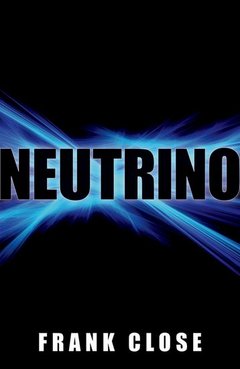Description
Neutrino
Author: Close Frank
Language: English
Publication date: 02-2012
192 p. · 12.9x19.6 cm · Hardback
192 p. · 12.9x19.6 cm · Hardback
Description
/li>Contents
/li>Biography
/li>
What are neutrinos? Why does nature need them? What use are they? Neutrinos are perhaps the most enigmatic particles in the universe. Formed in certain radioactive decays, they pass through most matter with ease. These tiny, ghostly particles are formed in millions in the Sun and pass through us constantly. For a long time they were thought to be massless, and passing as they do like ghosts they were not regarded as significant. Now we know they have a very small mass, and there are strong indications that they are very important indeed. It is speculated that a heavy form of neutrino, that is both matter and antimatter, may have shaped the balance of matter and antimatter in the early universe. Here, Frank Close gives an account of the discovery of neutrinos and our growing understanding of their significance, also touching on some speculative ideas concerning the possible uses of neutrinos and their role in the early universe.
1. A desperate remedy. 2. Seeing the invisible. 3. Winning the lottery. 4. Is the Sun still shining?. 5. How many Solar neutrinos?. 6. Underground science. 7. One, two, three. 8. More missing neutrinos. 9. 'I feel like I'm dancing I'm so happy'. 10. Extragalactic neutrinos. 11. Reprise.
Frank Close, OBE, is Professor of Physics at Oxford University and a Fellow of Exeter College. He was formerly vice president of the British Association for Advancement of Science, Head of the Theoretical Physics Division at the Rutherford Appleton Laboratory, and Head of Communications and Public Education at CERN. He is the author of several books, including The Void (OUP, 2007) and the best-selling Lucifer's Legacy (OUP, 2000). He was the winner of the Kelvin Medal of the Institute of Physics for his 'outstanding contributions to the public understanding of physics'. His other books include Particle Physics: A Very Short Introduction (2004), The Cosmic Onion (1983), The Particle Explosion (1987), End (1988), Too Hot to Handle - the race for cold fusion (1991), and The Particle Odyssey (OUP, 2002). In 2013 Professor Close was awarded the Royal Society Michael Faraday Prize for communicating science.
© 2024 LAVOISIER S.A.S.




